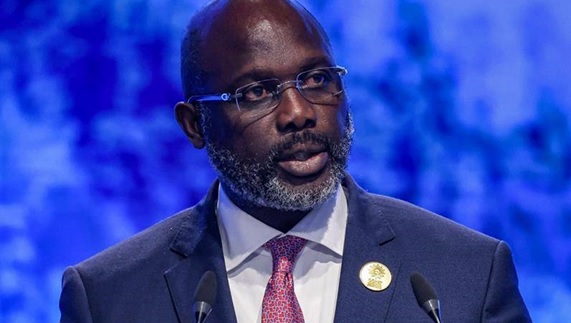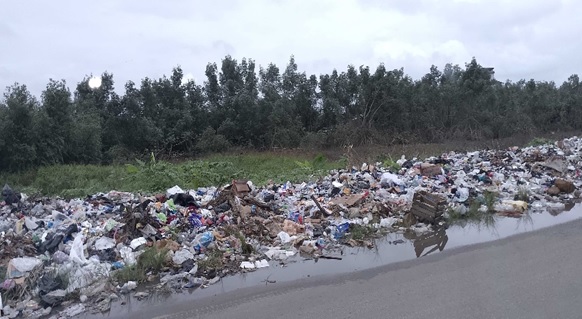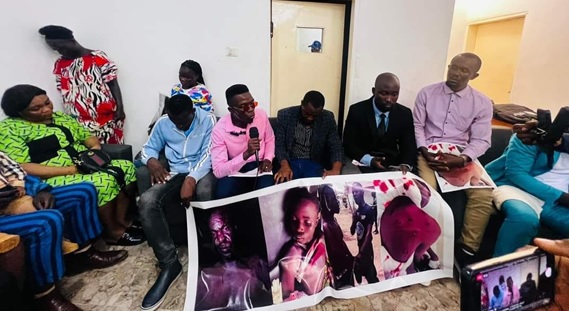MONROVIA – A letter circulating on social media, particularly on Facebook, has kindled a firestorm of controversy, raising tensions between the government and supporters of the former ruling Coalition for Democratic Change (CDC). The letter, dated August 14, 2024, is addressed to the Inspector General of the Liberia National Police, Col. Gregory Coleman, and requests the deployment of armed police officers to reportedly search the homes of former President George Weah and several of his former officials.
The letter, signed by Cllr. Edwin K. Martin, Chairman of the Assets Recovery and Property Retrieval Task Force (AREPT), states: “Dear Honorable Inspector General: I extend to you my profound compliments and wish to officially inform you that the Assets Recovery and Property Retrieval Task Force (AREPT) has moved to its official head office situated in the compound of Golden Key, King Gray Community, Paynesville City, Montserrado County. Predicated upon the scope of AREPT’s mandates, I respectfully request an assignment of seven (7) ERU officers of the Liberian National Police for the provision of security as we implement our mandates in line with the authority granted to us by Executive Order # 126. Honorable Director, realizing the high risks associated with persons with whom our investigation will be involved, I am under the obligation to raise this concern for your prompt and timely consideration.”
The letter goes on to invite Col. Coleman to visit AREPT’s head office at his convenience, before concluding with formal expressions of esteem. However, it is the request for armed officers to secure what many interpret as a search of the former President’s properties that has glowed widespread alarm and condemnation, particularly among CDC supporters.
Political commentators and critics of the Unity Party-led administration, headed by President Joseph Boakai, have accused the government of using state power to target political opponents. They argue that the letter is part of a broader strategy to undermine former President George Weah, who remains a significant political figure as the leader of Liberia’s largest opposition party, the CDC. The timing of this letter has also raised eyebrows, given that President Boakai is currently abroad, attending the 124th National Black Business Conference in Atlanta, Georgia.
Supporters of the CDC have taken to Facebook and other social media platforms to express their outrage over the letter, accusing the government of plotting to harass and intimidate their party leader. Many have issued strong condemnations of the alleged plan, with some even making thinly veiled threats against the administration. The level of public anger was further amplified by a brief statement from Representative Yekeh Kolubah of Montserrado County’s District #10, who posted on his Facebook page: “The Unity Party Government to raid former President George Weah house.”
The social media uproar reflects deep-seated political divisions in Liberia, with many viewing the AREPT’s actions as a deliberate move to escalate tensions between the government and the opposition. The controversy comes at a sensitive time for President Boakai, who is away from the country and thus unable to directly address the growing public outcry. His absence has only fueled speculation and concern that the administration may be overstepping its bounds in its pursuit of former officials from the Weah administration.
Political analysts warn that the situation, if not carefully managed, could lead to a significant escalation of political unrest in the country. The idea of armed police officers raiding the homes of a former president is unprecedented in Liberia’s recent history and could be perceived as a dangerous precedent. Such actions, critics argue, could further polarize the already tense political environment, potentially leading to wider unrest.
The AREPT was established under Executive Order #126, with a mandate to recover state assets that may have been misappropriated by previous administrations. While the task force’s mission is legally sanctioned, the methods it employs have come under scrutiny, particularly in light of this latest development. Many Liberians are questioning whether the task force is being used as a political tool rather than a neutral body committed to justice and accountability.
As the controversy continues to brew, all eyes are on President Boakai and his administration to see how they will direct this politically charged situation. The potential fallout from this incident could have far-reaching implications for Liberia’s political landscape. The administration’s response will likely determine whether this situation de-escalates or further inflames the nation’s political tensions.







